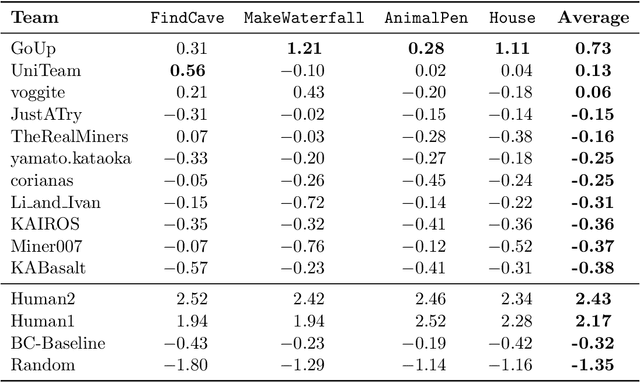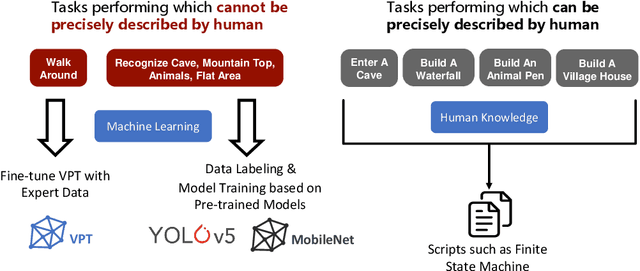Sander Schulhoff
Prompt Optimization and Evaluation for LLM Automated Red Teaming
Jul 29, 2025Abstract:Applications that use Large Language Models (LLMs) are becoming widespread, making the identification of system vulnerabilities increasingly important. Automated Red Teaming accelerates this effort by using an LLM to generate and execute attacks against target systems. Attack generators are evaluated using the Attack Success Rate (ASR) the sample mean calculated over the judgment of success for each attack. In this paper, we introduce a method for optimizing attack generator prompts that applies ASR to individual attacks. By repeating each attack multiple times against a randomly seeded target, we measure an attack's discoverability the expectation of the individual attack success. This approach reveals exploitable patterns that inform prompt optimization, ultimately enabling more robust evaluation and refinement of generators.
GPT Deciphering Fedspeak: Quantifying Dissent Among Hawks and Doves
Jul 26, 2024



Abstract:Markets and policymakers around the world hang on the consequential monetary policy decisions made by the Federal Open Market Committee (FOMC). Publicly available textual documentation of their meetings provides insight into members' attitudes about the economy. We use GPT-4 to quantify dissent among members on the topic of inflation. We find that transcripts and minutes reflect the diversity of member views about the macroeconomic outlook in a way that is lost or omitted from the public statements. In fact, diverging opinions that shed light upon the committee's "true" attitudes are almost entirely omitted from the final statements. Hence, we argue that forecasting FOMC sentiment based solely on statements will not sufficiently reflect dissent among the hawks and doves.
Gymnasium: A Standard Interface for Reinforcement Learning Environments
Jul 24, 2024Abstract:Gymnasium is an open-source library providing an API for reinforcement learning environments. Its main contribution is a central abstraction for wide interoperability between benchmark environments and training algorithms. Gymnasium comes with various built-in environments and utilities to simplify researchers' work along with being supported by most training libraries. This paper outlines the main design decisions for Gymnasium, its key features, and the differences to alternative APIs.
The Prompt Report: A Systematic Survey of Prompting Techniques
Jun 06, 2024Abstract:Generative Artificial Intelligence (GenAI) systems are being increasingly deployed across all parts of industry and research settings. Developers and end users interact with these systems through the use of prompting or prompt engineering. While prompting is a widespread and highly researched concept, there exists conflicting terminology and a poor ontological understanding of what constitutes a prompt due to the area's nascency. This paper establishes a structured understanding of prompts, by assembling a taxonomy of prompting techniques and analyzing their use. We present a comprehensive vocabulary of 33 vocabulary terms, a taxonomy of 58 text-only prompting techniques, and 40 techniques for other modalities. We further present a meta-analysis of the entire literature on natural language prefix-prompting.
BEDD: The MineRL BASALT Evaluation and Demonstrations Dataset for Training and Benchmarking Agents that Solve Fuzzy Tasks
Dec 05, 2023



Abstract:The MineRL BASALT competition has served to catalyze advances in learning from human feedback through four hard-to-specify tasks in Minecraft, such as create and photograph a waterfall. Given the completion of two years of BASALT competitions, we offer to the community a formalized benchmark through the BASALT Evaluation and Demonstrations Dataset (BEDD), which serves as a resource for algorithm development and performance assessment. BEDD consists of a collection of 26 million image-action pairs from nearly 14,000 videos of human players completing the BASALT tasks in Minecraft. It also includes over 3,000 dense pairwise human evaluations of human and algorithmic agents. These comparisons serve as a fixed, preliminary leaderboard for evaluating newly-developed algorithms. To enable this comparison, we present a streamlined codebase for benchmarking new algorithms against the leaderboard. In addition to presenting these datasets, we conduct a detailed analysis of the data from both datasets to guide algorithm development and evaluation. The released code and data are available at https://github.com/minerllabs/basalt-benchmark .
Towards Solving Fuzzy Tasks with Human Feedback: A Retrospective of the MineRL BASALT 2022 Competition
Mar 23, 2023



Abstract:To facilitate research in the direction of fine-tuning foundation models from human feedback, we held the MineRL BASALT Competition on Fine-Tuning from Human Feedback at NeurIPS 2022. The BASALT challenge asks teams to compete to develop algorithms to solve tasks with hard-to-specify reward functions in Minecraft. Through this competition, we aimed to promote the development of algorithms that use human feedback as channels to learn the desired behavior. We describe the competition and provide an overview of the top solutions. We conclude by discussing the impact of the competition and future directions for improvement.
 Add to Chrome
Add to Chrome Add to Firefox
Add to Firefox Add to Edge
Add to Edge